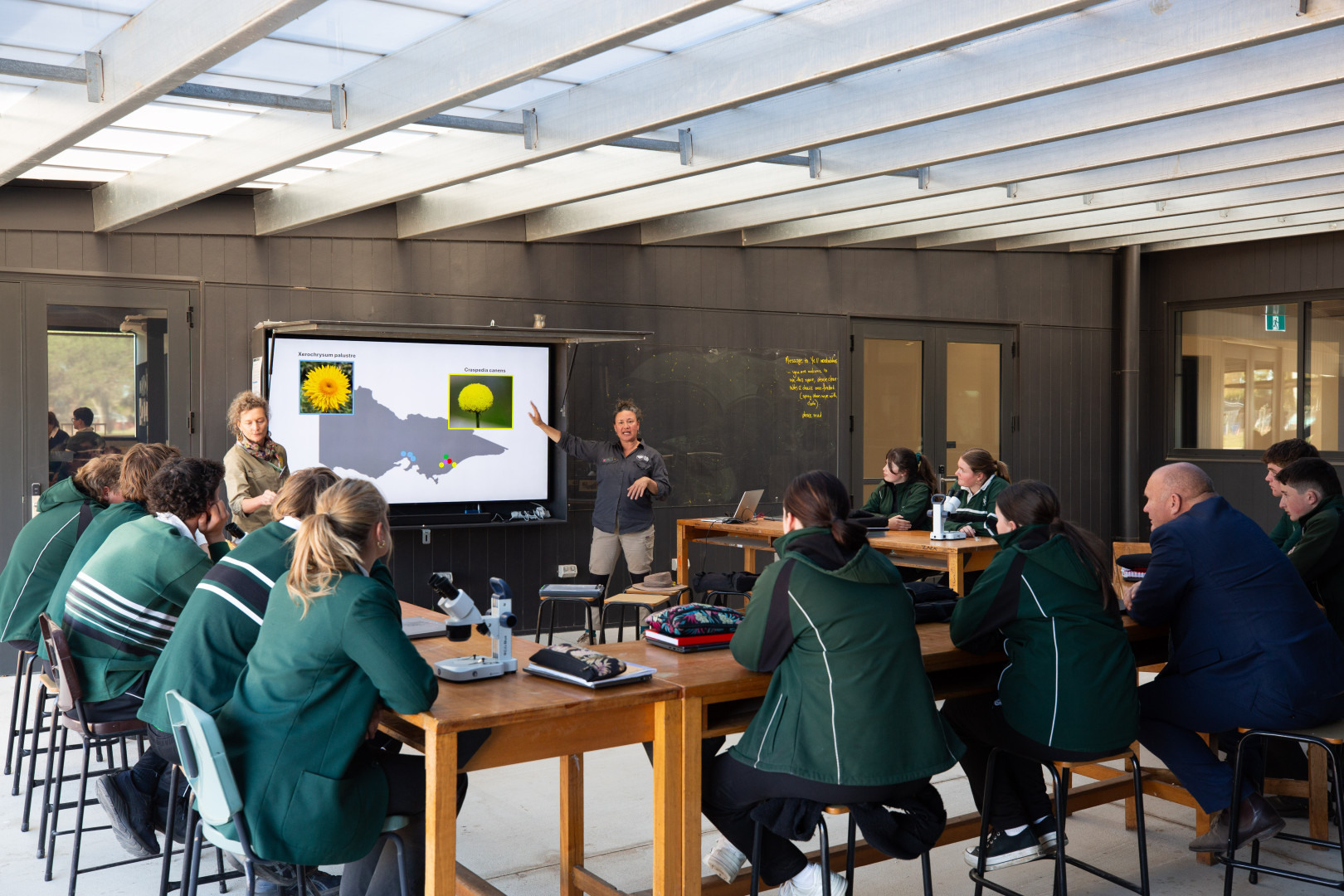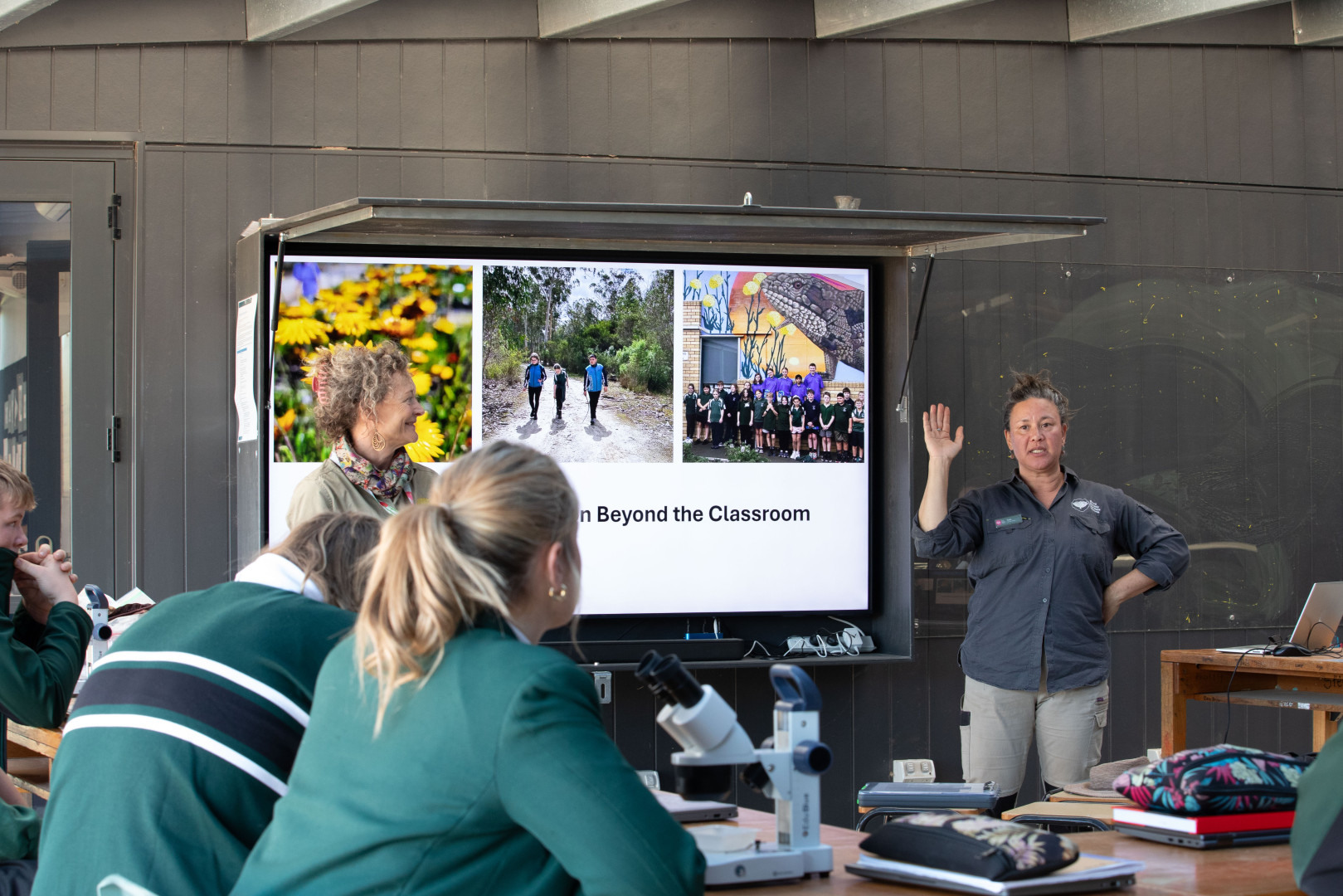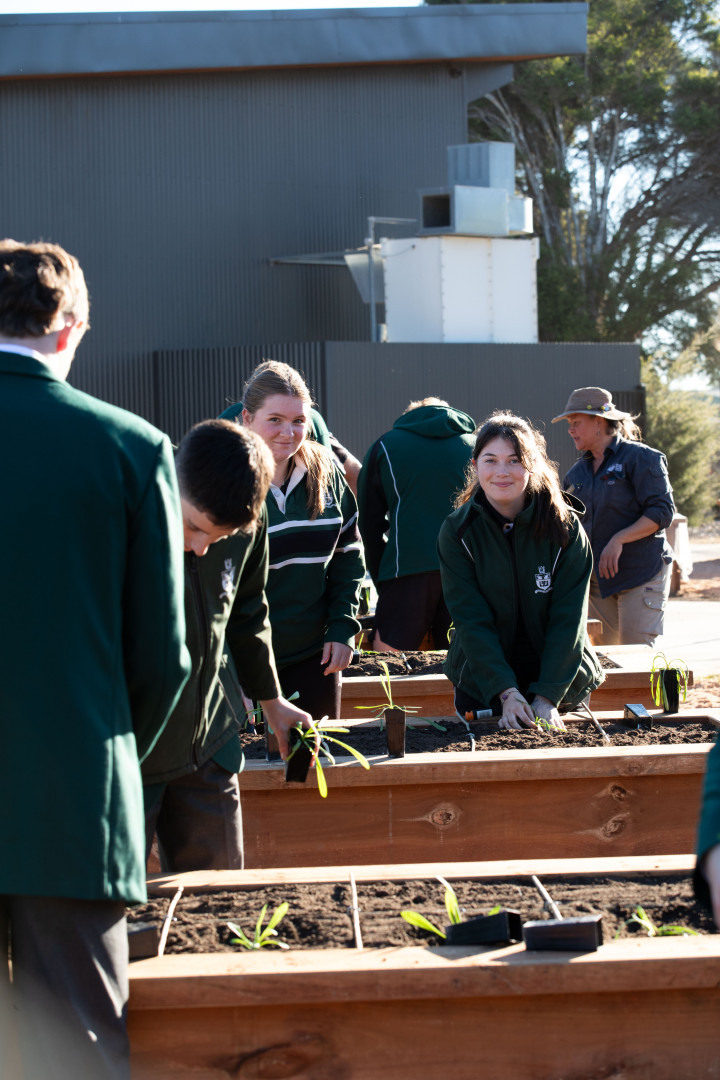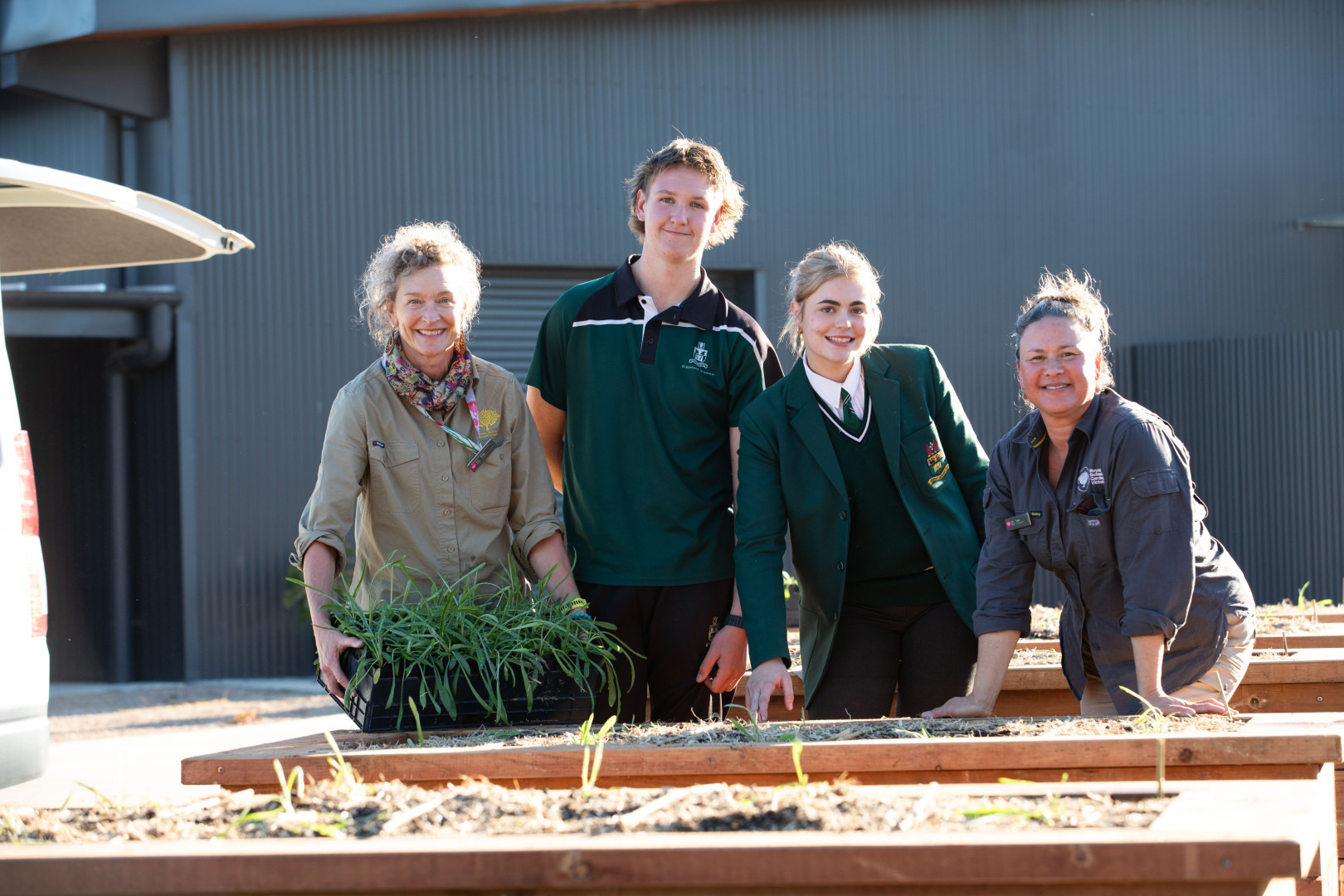We are always looking at ways to broaden what learning looks like at ŷ��AV Grammar and one area that has grown considerably (pun intended!) over the past few years is our intentional broadening of learning opportunities around agricultural education.
Why Ag at ŷ��AV Grammar?
The first part of the why is relatively obvious; ŷ��AV is renowned for having some of the best agricultural land in Australia due to its climate, proximity to market and it relatively high-water security. Add to this progressive farmers alongside progressive farming practices, and then our region becomes highly productive. In fact, about 25 per cent of Victoria’s vegetable, beef and dairy production comes from ŷ��AV, representing around $7 billion in net worth.
Given that, it’s no surprise that more than 50 per cent of our school families have direct connections to the Agricultural industry, which helps explain why it’s important to us that we create improved pathways to the industry, made even more important because Ag faces significant challenges in attracting a skilled workforce. The Australian Bureau of Statistics reports an entrenched downward trend in agricultural workforce numbers, while Youth Insights data shows that only 2.9 per cent of young Australians express interest in pursuing agricultural careers. This lack of interest is further compounded by outdated public perceptions, with nearly one in five Australians believing rural industries have seen little change in the past 50 years. It is viewed as being male-dominated, labour-intensive and, in part, an unsustainable lifestyle.
Education is an essential element in bridging this gap and helping to foster a more accurate understanding of modern agriculture, and as a ŷ��AV school educating students from ŷ��AV farms we need to play in role in creating those pathways where students can pursue their passions or at a minimum get a deeper understanding of the progressive nature of a modern farming.
The success of our program won’t be seen one or two years, but over many. Not only do we need to develop our teaching staff to become experts in the subject, we also need to develop a program that allows student to get tasters of the industry which intentionally connects them with the technology and progressive thinking that shapes the modern farming approach. Fortunately, those tasters are easily accessible. We start early at our ŷ��AVs with students learning about the environment, living sustainably and even looking after their own worm farms. At Bairnsdale we have our award-winning Green Team who themselves have their own Ag enterprise with their kitchen garden, chook palace, and are active in the interconnected concepts of sustainability. Through the lead of Todd Cook the Bairnsdale campus have been active in planting more than 4000 trees and, through that process, centralised the conversation about biodiversity. Our St Anne’s community has been on similar journey with the leadership of Jackie Schuback through the campus vegetable patch, chook run and engagement with Seed Commnity Garden, which is currently running a program with the campus’s Service Captains.
At the Garnsey Campus, we have a deeply engaged class of students embarking on our first ever ŷ��AV Ag and Hort class (Units 1 & 2) which will extend to include Units 3 & 4 next year as well as offer our first Ag enterprise Year 10 elective class. The students’ experiences to date have been positive, thanks to the wonderful support of our family families and leading industries. The Clynes hosted our students for a remarkable insight not the robotic dairy at Hillside Farm, the Nethercote family also hosted the students so they could to explore the capacity of drones in Agriculture, and, next term, Mark Humphris will support them with some hands-on work with cattle to explore the features and characteristics of ruminant animals such as cattle and sheep. This partnership with farming families from our own School Community is highly influential on our student experiences and often is a key factor in their engagement in the content, and we are very grateful for the support we have had to date.
What is the end game? Naturally we want to evolve the program and are working with our local MPs to seek advocacy of our aspirations and support in various forms. Interestingly, in the last round of funding for Ag education, of the $10 million provided, less 4% went to the ŷ��AV region. And this underrepresentation is something we are working to resolve.
Ultimately, we want all our students to have a deeper appreciation of modern farming and develop a passion for food production. If a percentage of these students develop a passion for the industry and go on to study Agribusiness or Agricultural Science at university, we will partly reach even better outcomes. If another percentage remained in local area and entered the workforces as skilled and knowledgeable workers, then that would be an evener stronger outcome.
The Ag industry needs fresh energy to continue to drive its growth and our school is proud and engergised to play a very local role in that movement.
















